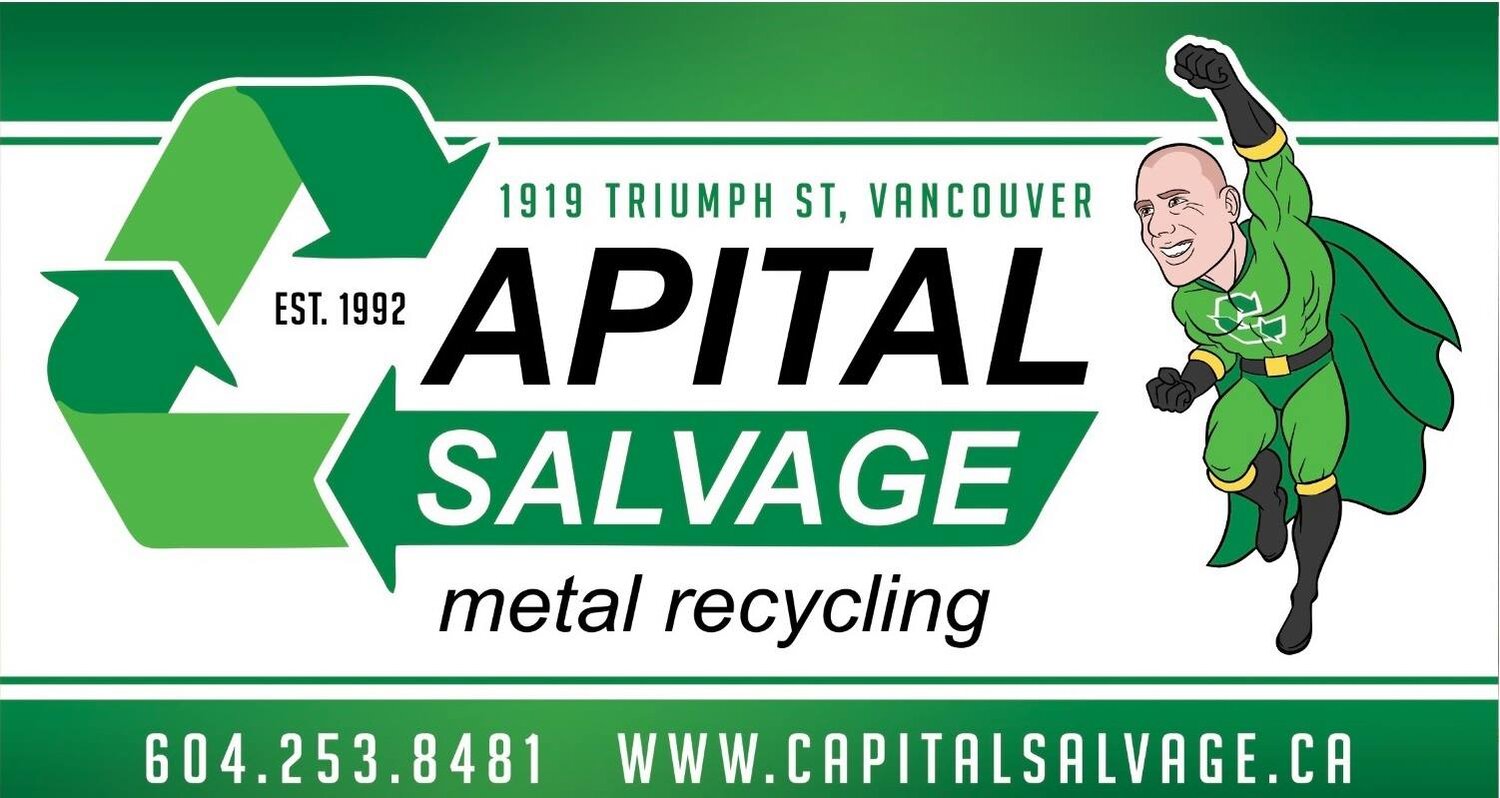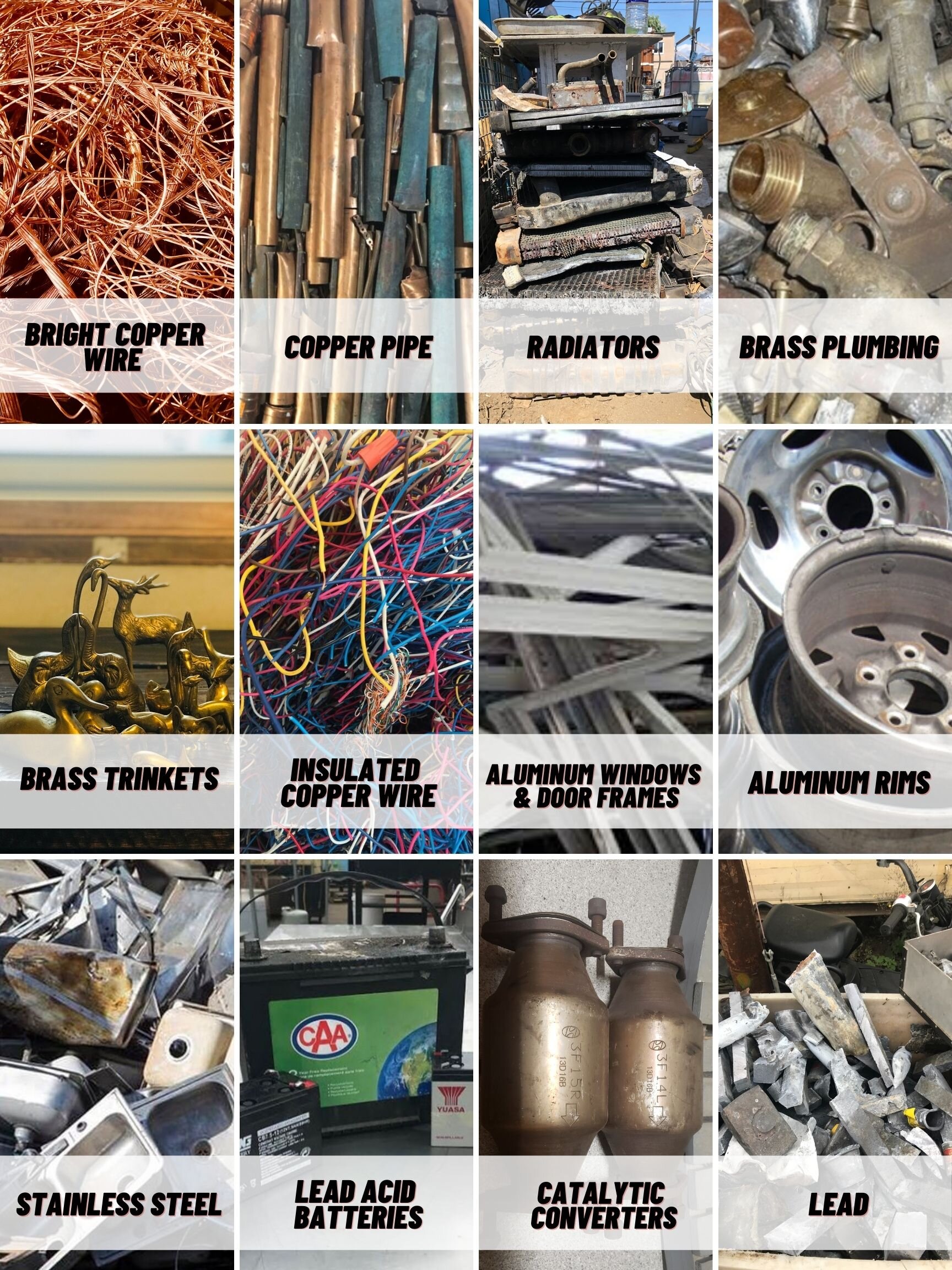Scrap 101
Step 1:
Test everything with a magnet, sort magnetic (ferrous) from non magnetic (non ferrous)
In general, non ferrous (copper, brass, aluminum, stainless steel) has a much higher return than ferrous (steel, iron, tin)
Step 2:
Try to separate your different non ferrous. Using buckets, bags or garbage bins can be helpful. If you need any pointers we are happy to assist!
If you need help with a large scale job, we can supply bins or help with a pick up! Give us a call at 604.253.8481
Step 3:
We will weigh up each grade of metal and pay you per pound.
Prices can change daily based on the markets, call us anytime for a quote!
Frequently asked questions
Q: Can I buy auto-parts from you?
A: No. We do not sell anything other than scrap metal. Yes, if you found a part in our yard, you could buy it as scrap metal. However, we do not catalogue specific auto-parts and cannot give you any mechanical advice, sorry.
Q: Do you offer free pick-ups?
A: We offer pick-up services. Whether pick up is free or not depends on the proximity to our location, the labour required, and the load's size/value. Please feel free to fill out our job inquiry form, and we will get back to you promptly during business hours.
Q: Can I drop off large household appliances for recycling?
A: YES! We are happy to help responsibly dispose of your old stove, fridge, deep freezer, metal dishwashers, washer, dryers, hot water tanks and more. Please note a $10 charge for Freon disposal (a toxic chemical in fridges/freezers).
Q: Do you accept E-scrap?
A: We accept some types of e-scrap; however, please call or email before dropping it off. There is a recycling depot and Free Geek just around the corner for those things we cannot recycle.
Q: Can I buy metal from you?
A: Yes! We usually sell metal by the pound to those looking for a cheap way to source materials for hobbies or various projects. If you wish to purchase in bulk, please give us a call or email.
Q: What is the difference between ferrous and non-ferrous metal?
Non-ferrous metals do not contain iron and are usually non-magnetic; the most common types are copper, brass, stainless steel, and aluminum. Non-ferrous metals are more resistant to corrosion or rust, unlike ferrous metals. Ferrous metals include steel and cast iron.
Q: What does it mean if the metal I bring in is called "dirty"?
"Dirty metal" usually has other materials attached, such as plastic, wood, cement, dirt, or lesser value metal. If the other material is not removed, it may lead to a lower price. For example, a metal such as aluminum may have nails, screws, plastic, or wood attached. This would be considered "dirty". To be considered "clean," the material would need those removed. If they are removed, we will buy the metal at a higher price.
Q: Is all insulated copper wire the same?
No, not all wire is created equal. We graded our copper by the copper percentage compared to the amount of insulated plastic, aluminum or other coatings. We also consider the grade/quality of copper that is inside the wire.
Q: Why are the prices different from the last time I brought in metal?
Prices of scrap, just like all commodities and stocks, change as the market changes. We can typically guarantee a price until the following Friday if you have been quoted. You can always call or email ahead of time for a quote.
Q: What forms of ID are required to sell metal?
A: Due to Provincial laws that are in effect in all scrap yards in BC, ID is mandatory to sell any regulated metal. The Province has decreed the ONLY ACCEPTABLE IDENTIFICATIONS are:
1) A valid, hard copy BC Identity Card (BCID) or
2) A valid, hard copy Driver's Licence from anywhere in Canada or the USA.
For more info see: The Metal Dealer's Act


